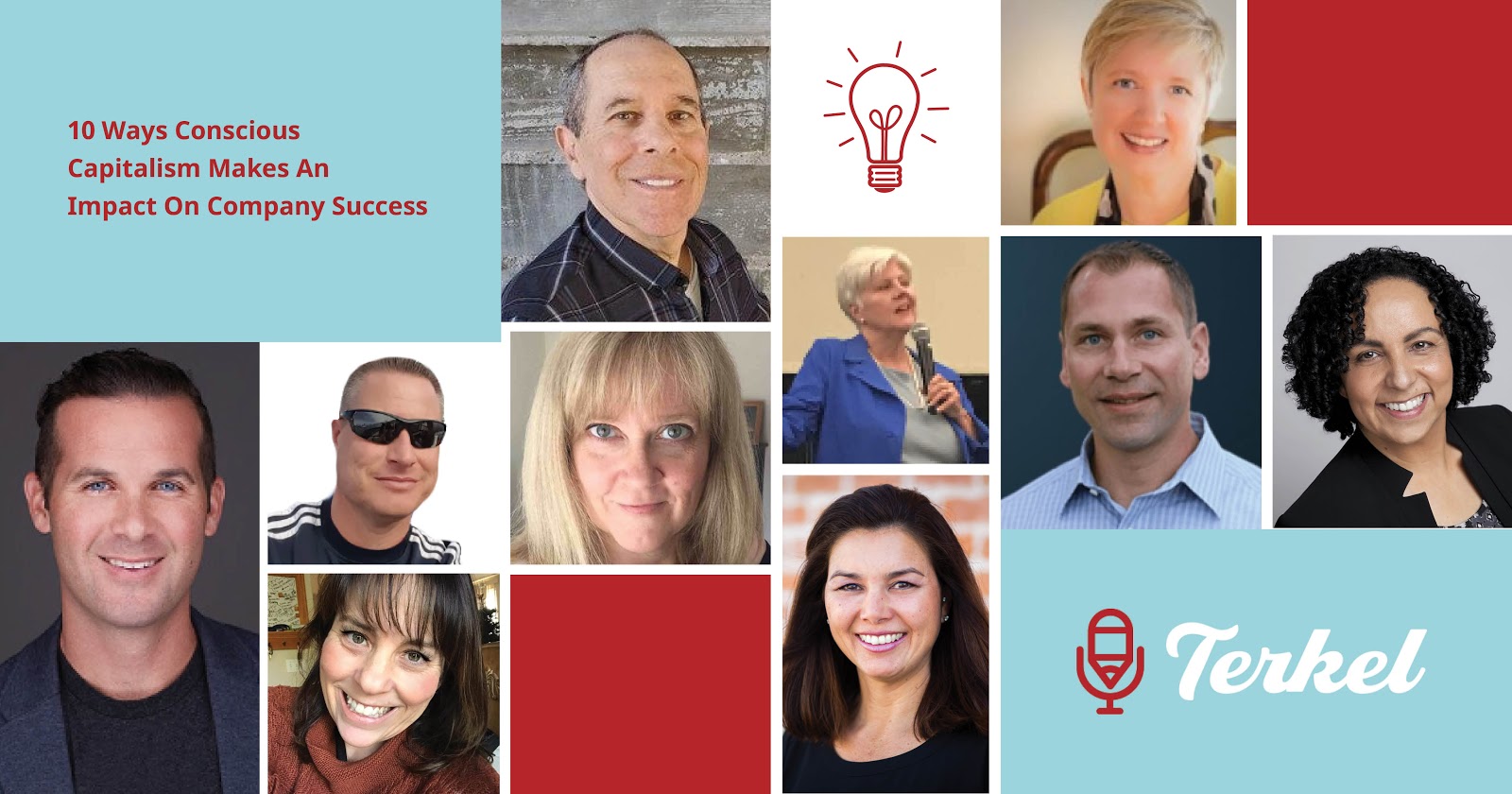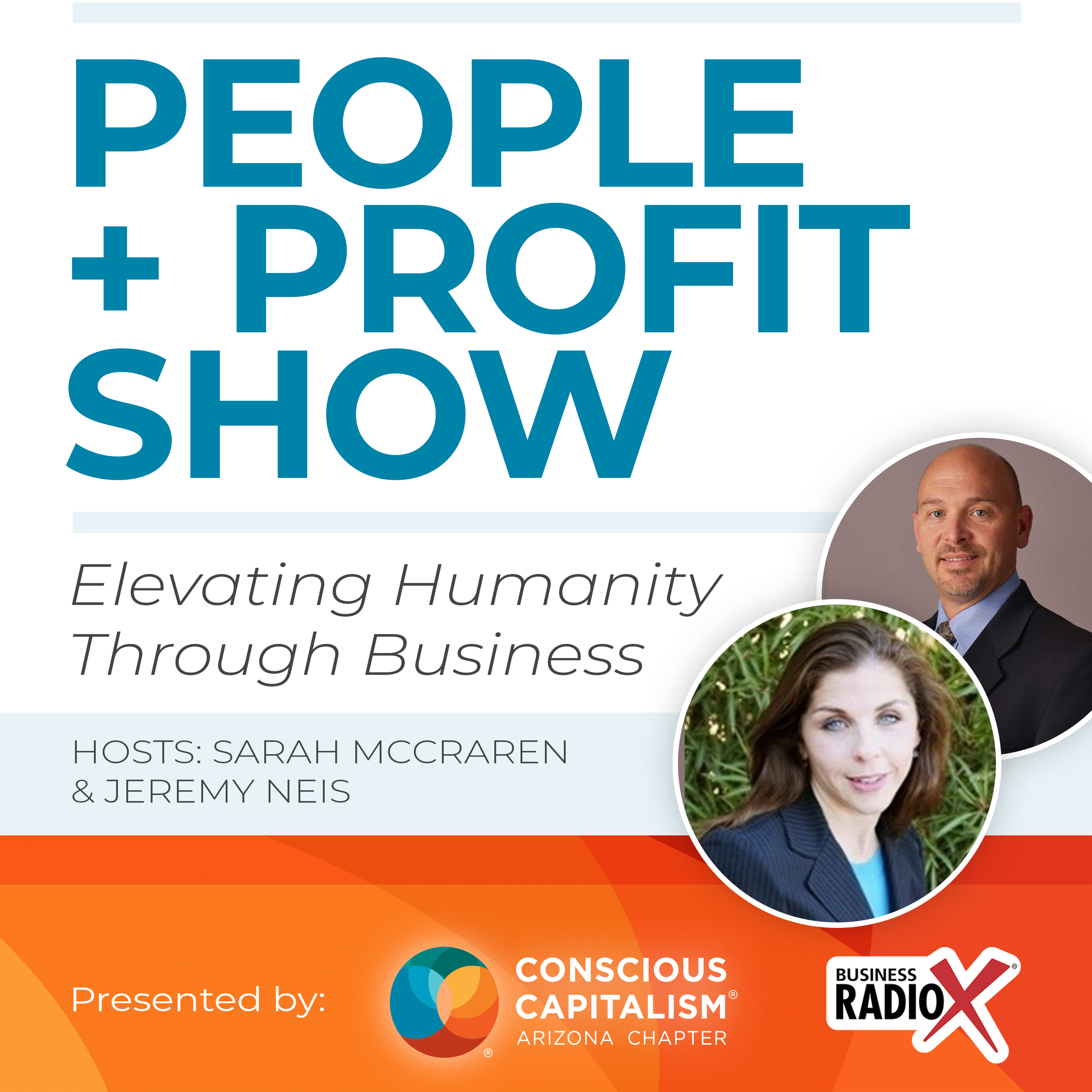What impact has Conscious Capitalism had on the success of your company?
Here are ten ways Conscious Capitalism makes an impact on company success.
- Motivated By a Higher Purpose
- Accomplishing Humane Goals
- Attracting Amazing Talent
- Balancing People, Product, and Process
- Strong Brand Image
- Fostered Collaborative Relationships
- Creating a Virtuous Circle
- Prioritizing ESG Commitments
- Created and Engaged Ecosystem
- Prioritize Ethics To Pursue What’s Pure
Motivated By a Higher Purpose
We were living and breathing the principles of Conscious Capitalism before it had a name. I guess you could say we were unconscious, Conscious Capitalists. From the time we were a mere team of three operating out of the backroom of a local coffee shop, we were motivated by a higher purpose to empower rehab therapists to achieve greatness in practice—and it remains our company’s North Star to this day. Championing a conscious, people-first approach to business, and treating everyone—customers, employees, vendors, investors, and our community—as true stakeholders in the business has helped us grow and innovate over the years in alignment with our customers’ evolving needs. I attribute much of our company’s success to Conscious Capitalism, as it has helped us remain true to our roots and hyper-focused on what matters most to the people we serve.
Heidi Jannenga, Co-Founder and Chief Clinical Officer of WebPT
Accomplishing Humane Goals
Conscious capitalism is the idea that business can elevate humanity. We are a recruiting agency, specializing in leadership positions. There is a great need for placing the right people in the right positions of leadership within for-profit and nonprofit organizations so they can accomplish the humane goals they have set out to do. We believe that this process has accomplished the goals of conscious capitalism and has aided in elevating humanity.
Jon Schneider, President and Founder of Recruiterie
Attracting Amazing Talent
The founders of Wilco Source, Kedar Rengali, and Sundar Ramasamy, instinctively built the company on the tenets of Conscious Capitalism before they knew there was even a formal philosophy around this way of conducting business. They believed in opportunity creation for all, especially those facing adversity. Choosing to hire individuals based more on character, values, and their drive to make an impact and less on credentials on a resume. They’ve also fostered a culture and way of doing business that always prioritizes people over profits. These two things alone have dramatically impacted the success of Wilco Source by attracting amazing talent who empower us to fulfill our brand promises and mission every day and cultivating long-lasting relationships with our customers.
Chris Lekander, Vice President of Delivery at Wilco Source
Balancing People, Product, and Process
Butler/Till is a results-driven media and communications agency in Rochester, New York with 100 employees and locations in NYC and Rochester serving Fortune 500 clients. BT is a certified B-Corp as well as a Certified Woman-Owned Business Enterprise (WBENC). Tracy Till and her co-founder understood the critical investment made by all their employees and their champions, not just their management team. They were inspired to build a thoughtful succession plan while also leaving a legacy that ensured the company would continue without their active involvement. They fully understood that their agency was stronger as a unified team because each person as an ‘owner’ could truly influence greatness.
By choosing the Employee Stock Ownership Plan (ESOP) method, they guaranteed that all perspectives would be included; share price and the value of the company as well as each owner’s focus and interests which were monitored by the ESOP Trustee. Tracy emphasized that Butler-Till’s success always came from their solid focus on the people, their product excellence and evolution, and quality improved processes. The leaders knew if they treated all three with the same or with very similar respect, their outcomes would be positive. In my opinion, it was a case of 1+1+1=50 because of the generous leadership styles and vision of the Co-Founders.
Katharine Halpin, Founder and CEO The Halpin Companies Inc.
Strong Brand Image
I remember when one of our first clients told us they were now a “conscious” company and to market their brand. At the time, people weren’t Conscious Capitalism members or B Corps. There wasn’t a lot of search volume around relevant keywords, but we created some content to satisfy the client. Since then, I’ve witnessed how that decision by our client has helped create a very strong brand image for their company. The initial conversations are just different when people on the other end of the Zoom have done their research and are genuinely excited about engaging with a brand they trust and admire.
Brett Farmiloe, CEO and Founder of Markitors
Fostered Collaborative Relationships
Stakeholder capitalism is a collaborative approach to business that delivers impact as well as revenue. This means that shareholders are just one of the many stakeholders in an organization who are considered when decisions are being made. A great place to start this kind of collaboration is with your own employees. In many organizations, there has been a gradual shift toward building relationships with employees through communication and transparency. This replaces the more common and traditional approach of seeing employees simply as a means to an end. As stakeholder capitalism concepts become more mainstream, businesses are finding that fostering a collaborative relationship with employees increases employee engagement, reduces turnover, and fuels innovation.
Becky Papp, Founder of the Colman Group
Creating a Virtuous Circle
Our entire business model is built upon the idea of creating a virtuous circle that brings stakeholder groups in the community together to improve the situation for everyone. This involves the concept of network effect where the more people who get involved the more value it has to the group. This creates a self-perpetuating system where everyone has both something to offer and something to gain by carrying out their role in the virtuous circle.
The hybrid mission of supporting non-profits while helping for-profit small businesses thrive means that a diverse range of stakeholders in the community act in their own interests while also serving the interests of others. The businesses support the non-profits who then provide services to individuals/families who then support those businesses that reflect their values and share their commitment to the community. No stakeholder group is more or less important than the others and all work together and play a key role in the success of the other stakeholder groups.
Tim Claiborne, Founder of Better Phoenix
Prioritizing ESG Commitments
We are on the cusp of change. With global trust in institutions at an all-time low with only 1 in 5 believing that the system is working for them, people are starting to rely more on companies and company leaders to create the changes we want to see in the world. For-profit companies are pivoting to recognize and meet the expectations of their varied stakeholders: investors, customers, and employees. I just completed my certification tied to Workhuman’s Charter of Workplace Rights such as, “I have the right to be paid fairly” and “I have the right to do meaningful work.” Companies’ environmental, social and governance (ESG) commitments are no longer optional but essential to their business success. And while a lot of work has occurred in the environmental and governance areas, this is the time for the advancement in society, recognizing that we all contribute to our interconnectedness and humanity.
Carol Turpen, Carol Turpen Consulting, LLC
Created and Engaged Ecosystem
We have been following Marc Benioff of Salesforce for years and he tugged at us further when he stated that “The new capitalism is that businesses are here to serve their shareholders, but also their stakeholders — employees, customers, public schools, the homeless and the planet.”
We have known for years about stakeholder engagement as a means to achieve a truly engaged ecosystem. Whether it’s your Team or the Community you serve. Our mantra has always been that “the customer comes 2nd.” Empowering your Team to be part and parcel to every objective & goal will trigger the best customer experience imaginable.
In their San Francisco headquarters, Salesforce went to another level of engagement through welcoming the outside Community to The Ohana Floor, the top story of their S.F. Tower for 50-person public tours one Saturday each month to view in the City by the Bay. Their Global VP stated that “Our values as a company inspired us to develop a program where we can share world-class views with the city where it all began.”
Wally Simon, Senior Advisor at Transplant First Academy and Member to Member Connections at Conscious Capitalism Arizona
Prioritize Ethics To Pursue What’s Pure
One of the great pleasures of my life is sharing the capacity for offering products through pure business practices and celebrating pure love for humanity. Staying healthy and well, physically, emotionally, and economically, is at the forefront of all our thoughts right now as the COVID-19 pandemic rages across the planet. When business processes and practices are pressured to adjust rapidly in ever-changing circumstances at this unique time in history, it may be tempting to accept shortcuts. However, it is essential to pause, reflect, and embrace a well-rounded perspective.
The core four tenets of conscious capitalism are higher purpose, stakeholder orientation, conscious leadership, and conscious culture. Remembering that real people are at the center of all exchanges will anchor your decision-making, ensuring that stakeholders all along the value chain are thoughtfully considered. Stay focused on fostering a collective heroic spirit to create opportunities for innovative solutions to be brought forward across cultures and generations. By remaining committed to empowering ethical entrepreneurship, it will be possible to persevere together in navigating through the storms.
Jena Ritchie Land, Leader in Empowering Ethical Entrepreneurship
Terkel creates community-driven content featuring expert insights. Sign up at terkel.io to answer questions and get published.





